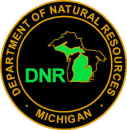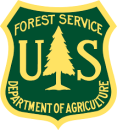Ways to Get Involved
There are several ways you can help to restore and protect wildlife and native plants in Michigan.
Community science
Consider tracking your plant and wildlife sightings with a community science reporting app like iNaturalist or eBird.
Help support wildlife
You can provide resources for wildlife, including pollinators and bats by creating habitat with plants native to your area. You can welcome bats to your property by installing a bat house and turning off any unnecessary lights.
Other ways to protect wildlife and natural areas
- Be a responsible pet owner
- Keep dogs on leashes
- Keep cats indoors
- Give unwanted pets to a friend or neighbor – avoid releasing pets into the wild
- Landscape to save insects and natural areas while improving watershed health
- Plant native, non-invasive plants in your garden
- Avoid insecticides and other garden chemicals
- Create rain gardens to manage runoff
- Prevent the spread of invasive species invasive species
An invasive species is any plant or animal that has spread or been introduced into a new area where they are, or could, cause harm to the environment, economy, or human, animal, or plant health. Their unwelcome presence can destroy ecosystems and cost millions of dollars.
Learn more about invasive species- Clean boats of all aquatic organisms including plants and drain all water before transporting
- Clean boots and shoes before entering a new natural area
- Participate in volunteer opportunities at local parks to remove invasive species
How to help protect piping plovers and other shorebirds
With ever-growing demands on our beaches, there are fewer places for piping plovers that depend on Great Lakes beaches year-round to raise families, feed and rest. Beaches are irreplaceable homes for shorebirds and other animals. Piping plovers and other shorebirds have thrived for centuries on coastal beaches that are constantly shifting in response to storms and wave action. With fewer than 150 piping plovers in the Great Lakes Basin, each one makes a difference.
Everyday activities on the beach can unintentionally harm piping plovers. Nests, and even piping plovers, are really hard to see. When you get too close to birds, they flush (fly off of their nest or move away from feeding areas). While it might seem minor, this drives them away from what they need to survive - food and a resting place. Imagine if you were hungry and tired, and forces beyond your control kept you away from food all day, and no place felt safe to rest.
By following some specific steps, we can share the beach with piping plover adults and chicks to help them survive:
- Follow the guidance on signs and respect all areas fenced or posted for protection of wildlife
- Watch these entertaining birds from a distance
- If pets are permitted on beaches, keep them leashed and away from birds
- Remove trash and food scraps, which attract animals that might eat piping plovers and their eggs
- Do not feed animals on or near the beach. Keep your cats indoors.
The piping plover is making a comeback in the United States! You can help make sure this shorebird is around for future generations. Decades of efforts by landowners, organizations and government agencies are paying off. The piping plover has more than doubled its population in the Great Lakes since it was listed as threatened under the Endangered Species Act in 1986. Progress has been made, but our work is not done. Help the piping plover population reach full recovery! Beaches managed for wildlife need your support. They provide critical, dependable space for shorebirds raising families or migrating from one beach to another
Our Partners
We work with many partners across the Michigan.
Here are a few of our partners:
- Michigan Department of Natural Resources
- Michigan Department of Environment, Great Lakes and Energy
- U.S. Forest Service
- National Park Service
- U.S. Geological Survey
- U.S. Army Corps of Engineers
- Federal Energy Regulatory Commission
- U.S. Department of Agriculture Natural Resources Conservation Service
- U.S. Department of Agriculture Wildlife Services
- Universities and colleges in the midwest
- Local governments including counties and conservation districts
- Many non-governmental organizations with conservation missions
Education Programs
We typically have several opportunities available in our office, including AmeriCorps, the U.S. Fish and Wildlife Service Directorate Fellowship Program, Glasson Scholars at Michigan State University and the chance to submit art for the Endangered Species calendar.







